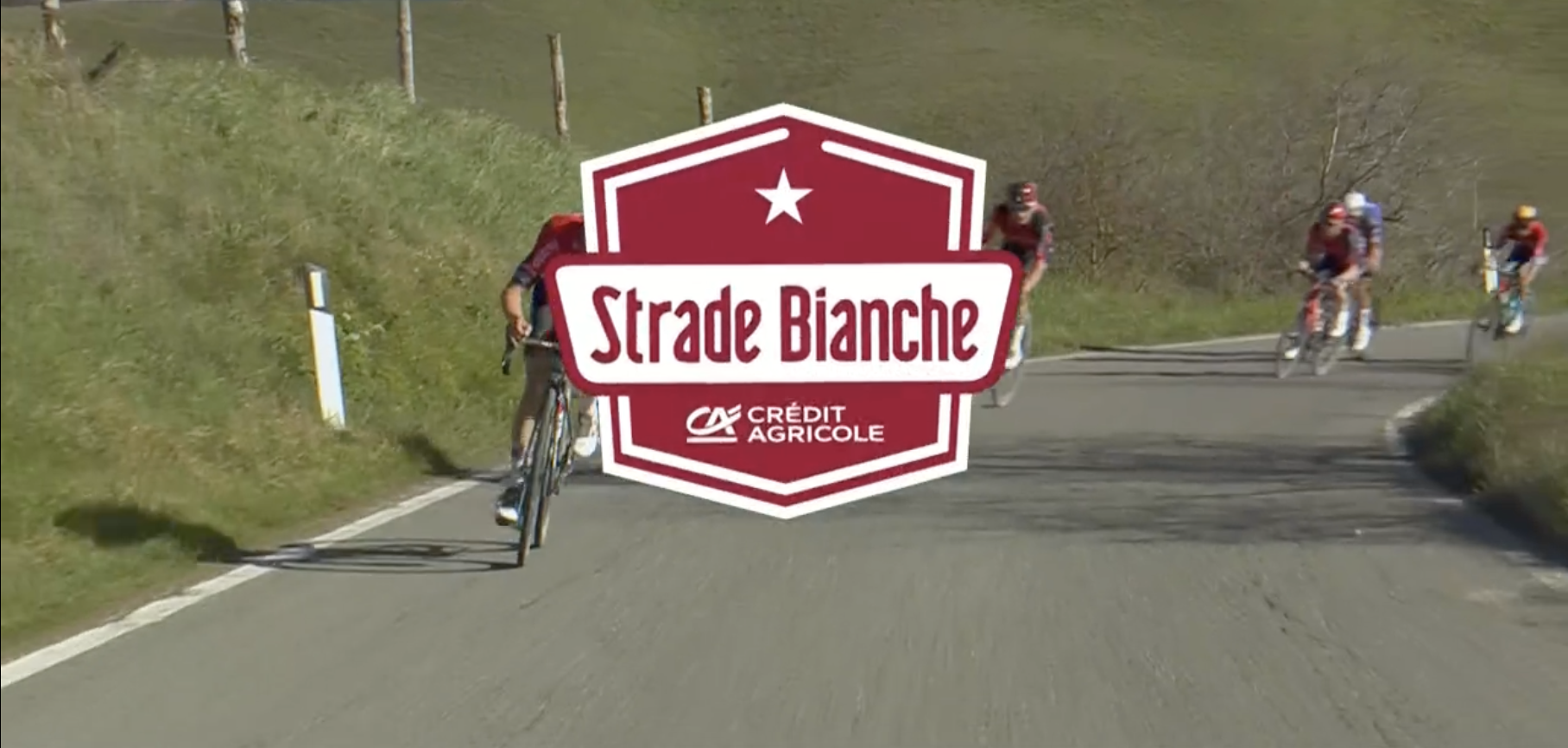
In addition to the five monument classic races, there are a few other one-day classic races of the same repertoire. Races like Strade Bianche, Amstel Gold, Fleche Wallonne, and Gent-Wevelgem. All these races have their own share of unique histories and challenges, and are highly anticipated by both the riders and cycling fans alike.
Strade Bianchi(Italy)
Strade Bianche is a one-day professional road cycling race that takes place annually in Tuscany, Italy. The race was first held in 2007 and has quickly become one of the most prestigious one-day races on the cycling calendar, known for its stunning scenery, challenging terrain, and

unique white gravel roads. The race takes place in early March and covers a distance of around 180 kilometers, with a mix of flat and hilly sections. The most unique feature of Strade Bianche is the white gravel/ unpaved roads, or strade bianche in Italian, that the riders must navigate. These narrow, unpaved roads can be extremely challenging, especially if the weather is wet or muddy, and often require a special type of bike with wider tires and stronger frames.
The race typically starts and finishes in the historic city of Siena, and includes several challenging climbs and descents along the way, including the steep climb to the Piazza del Campo in the heart of Siena. The race has a total of 11 sectors of gravel roads, totaling around 63 kilometers, and the riders must be skilled at navigating these technical and challenging sections in order to be competitive, with the course changing slightly from year to year. The race typically starts and finishes in the city of Siena, and includes several climbs and descents throughout the course.
Some of the most successful riders in the history of Strade Bianche include Fabian Cancellara, who won the race three times in 2008, 2012, and 2016, and Zdenek Stybar, who won the race in 2015, 2017, and 2019. Other notable winners include Julian Alaphilippe, who won in 2019, and Tiesj Benoot, who won in 2018.
Overall, Strade Bianche is a challenging and exciting race that is highly anticipated by both riders and cycling fans alike, and has quickly become a staple of the professional cycling calendar. This year’s, 2023 race took place on the 4th of March and was dominated by the British rider Thomas Pidcock. The breakaway group behind him had a formidable competition such as A.Walter, T.Benoot, M.Mohoric, V.Medouas, A.Costa, Q.Simmons, but finally Tom Pidcock had the legs and his decending/Handling skills gained him the required gap from the group behind and crossed the line first. This was Tom Pidcock’s first win on the Italian soil. The second and third spots were taken by Valentin Medouas and Tiesj Benoot.
Winners of the Strade Bianche from 2018-2023:
- 2018: Tiesj Benoot (Belgium)
- 2019: Julian Alaphilippe (France)
- 2020: Wout van Aert (Belgium)
- 2021: Mathieu van der Poel (Netherlands)
- 2022: Tadej Pogacar (Slovenia)
- 2023: Tom Pidcock (Great Britain)
Amstel Gold(Netherlands)
Amstel Gold Race is a one-day professional cycling race held annually in the Netherlands. The race was first held in 1966 and has since become one of the most prestigious one-day races in the world, attracting some of the top cyclists from around the globe.

The race takes place in the hilly terrain of the Dutch province of Limburg, and covers a total distance of around 260 kilometers. The route includes numerous steep climbs and descents, with some sections featuring gradients of over 20 percent. The race typically starts and finishes in the city of Maastricht, and features a number of circuits through the surrounding countryside, with the iconic Cauberg climb being the highlight of the race. The Cauberg is a short but steep climb that is tackled multiple times during the race and is often the site of decisive attacks.
Amstel Gold Race is part of the UCI WorldTour, which is the highest level of professional cycling competition. The race is known for its unpredictability and has seen a number of surprise winners over the years, including Mathieu van der Poel, who won the 2019 edition of the race in dramatic fashion.
This year’s, 2023 race is scheduled to take place on 16th April, and the route shall cover a distance of 240kilometers and 3707meters of ascent on famous climbs including the Geulhemmerberg, the Maasberg and the Cauberg.
In addition to the men’s race, there is also a women’s edition of Amstel Gold Race, which was first held in 2001. The women’s race follows a similar route to the men’s race, although it is slightly shorter at around 125 kilometers.
Overall, Amstel Gold Race is a challenging and exciting race that tests the skills and endurance of even the best cyclists in the world. Its beautiful setting and unpredictable nature make it a must-watch event for cycling fans around the world.
Winners of the Amstel Gold Race from 2018-2022:
- 2018: Michael Valgren (Denmark)
- 2019: Mathieu van der Poel (Netherlands)
- 2020: Race canceled due to COVID-19 pandemic
- 2021: Tom Pidcock (Great Britain)
- 2022: Michael Matthews (Australia)
Fleche Wallonne(Belgium)
The Fleche Wallonne is a one-day classic race held annually in April in Wallonia, Belgium. It is part of the Ardennes classics series, along with the Amstel Gold Race and Liege-Bastogne-Liege, and is one of the most prestigious one-day races on the cycling calendar. The Fleche Wallonne is usually held on a Wednesday, mid-week between the Amstel Gold Race and Liege-Bastogne-Liege. It is part of the UCI World Tour, which is the highest level of professional cycling, and attracts the world’s top riders.

The race is organised by the Amaury Sport Organisation (ASO), which also organizes other prestigious cycling races such as the Tour de France and Paris-Roubaix. The race was first held in 1936 and has been a regular fixture on the cycling calendar since then. The course is known for its steep climbs and is particularly challenging due to its hilly terrain. The race starts and finishes in the town of Huy, with a total distance of around 200 kilometers.
The most iconic feature of the Fleche Wallonne is the “Mur de Huy,” a short but brutally steep climb that the riders must tackle three times towards the end of the race, with the final climb coming just a few kilometers from the finish line. This makes for a thrilling finish as the riders battle it out on the steep slopes. The climb is only 1.3 kilometers long but has an average gradient of 9.3% and sections that reach 26% and is often decisive in determining the winner of the race.
The race is typically dominated by climbers and puncheurs, riders who excel on short, steep climbs. The list of past winners includes some of the greatest names in cycling history, including Eddy Merckx, Bernard Hinault, and Alejandro Valverde.
In recent years, the race has been won by Julian Alaphilippe, who has become something of a specialist in the Ardennes classics. Other recent winners include Anna van der Breggen and Annemiek van Vleuten, who have dominated the women’s race in recent years.
Overall, the Fleche Wallonne is a challenging and prestigious one-day race that is eagerly anticipated by cycling fans around the world. With its steep climbs, thrilling descents, and unpredictable finishes, it is a true test of a rider’s skill, strength, and endurance.
The women’s race was introduced in 1998 and has become an important event in its own right. It follows a similar course to the men’s race, with the Mur de Huy being the key feature. In recent years, the women’s race has been dominated by Dutch riders, with Anna van der Breggen and Annemiek van Vleuten winning multiple times.
Overall, the Fleche Wallonne is a challenging and exciting race that is a highlight of the cycling season. Its steep climbs, unpredictable finishes, and beautiful scenery make it a favorite among fans and riders alike.
Winners of Fleche Wallone from 2018-2022:
- 2018: Julian Alaphilippe (France)
- 2019: Julian Alaphilippe (France)
- 2020: Marc Hirschi (Switzerland)
- 2021: Julian Alaphilippe (France)
- 2022: Primož Roglič (Slovenia)
Julian Alaphilippe has been particularly successful in this race, winning three times in the past four years. Marc Hirschi and Primož Roglič both won their first Fleche Wallone titles in 2020 and 2022, respectively.
Gent Wevelgem(Belgium)
Gent-Wevelgem is a one-day road cycling race held annually in Flanders, Belgium. The race is part of the UCI World Tour and is known for its challenging course and unpredictable weather conditions. The race is named after the cities of Ghent (Gent in Dutch) and Wevelgem, which are located at either end of the race route.

The race was first organised by the cycling club Het Vliegend Wiel and was intended as a warm-up race for the Tour of Flanders. The course of Gent-Wevelgem has evolved over the years, with changes made to the route and the number of climbs included. In recent years, the route has included several climbs in the hills of the Flemish Ardennes, including the famous Kemmelberg climb, which has a maximum gradient of 23%. The race was first held in 1934 and has since become one of the most prestigious one-day races on the cycling calendar. The course is around 250 kilometers long and usually takes place in late March or early April, a few weeks before the Tour of Flanders.
The race starts in the city of Deinze and finishes in the town of Wevelgem, with the route passing through the flat plains of West Flanders, the hills of the Flemish Ardennes, and the Belgian coast. The course includes several climbs and cobbled sections, but is generally considered to be less difficult than other classics races such as the Tour of Flanders and Paris-Roubaix. However, the race is known for its unpredictable weather conditions, with strong winds and rain often making for a challenging day in the saddle. The race is often won by sprinters or strong all-rounders, with past winners including Eddy Merckx, Tom Boonen, and Peter Sagan. The most recent winner is Mads Pedersen of Denmark, who won a reduced sprint finish in 2020.
In addition to the men’s race, there is also a women’s race held on the same day, which has been part of the UCI Women’s World Tour since 2012. The women’s race covers a distance of around 140 kilometers and follows a similar course to the men’s race.
Overall, Gent-Wevelgem is a challenging and exciting race that attracts some of the world’s top riders. Its mix of flat roads, climbs, and cobbles, combined with the unpredictable weather conditions, makes for a thrilling day of racing.
Winners of Gent-Wevelgem from 2018-2022:
- 2018: Peter Sagan (Slovakia)
- 2019: Alexander Kristoff (Norway)
- 2020: Mads Pedersen (Denmark)
- 2021: Wout van Aert (Belgium)
- 2022: Sonny Colbrelli (Italy)
Peter Sagan won the race for a record third time in 2018. Alexander Kristoff, Mads Pedersen, and Wout van Aert are all strong classics riders who have had great success in other one-day races. Sonny Colbrelli won his first Gent-Wevelgem title in 2022, after finishing second in the race in 2018.